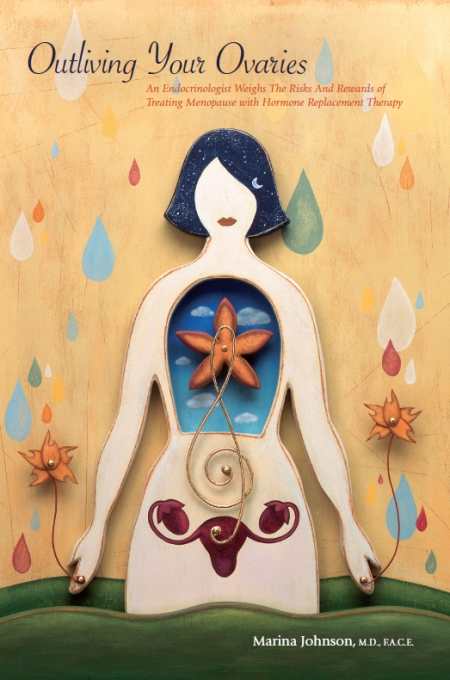
Outliving Your Ovaries
An Endocrinologist Weighs The Risks And Rewards Of Treating Menopause With Hormone Replacement Therapy
Dr. Johnson has developed an effective method for treating menopause that combines natural and pharmaceutical modalities.
The title of Outliving Your Ovaries is appropriate, aside from being a real attention-grabber. In it, medical writer, internal medicine specialist, endocrinologist, and pharmacist Dr. Marina Johnson hopes to dispel fear surrounding hormone replacement therapies and help women better understand their bodies.
For the first time in human history, women may live for decades after menopause due to hormone-based interventions in perimenopause and beyond. Yet hormones do much more than regulate fertility: the lack of hormone synthesis in postmenopausal years may be experienced as memory loss and increased risk for heart disease, osteoporosis, and some cancers, along with other life-altering negative effects such as sexual dysfunction.
Johnson is more than qualified to counsel women through these issues, and she does so effectively. She has developed a method for treating menopause that is out of the ordinary (combining natural and pharmaceutical modalities for optimal health) and clearly explained. This book will help those needing an unbiased look at treatment options and a starting point for doctor-patient discussions. By expertly and delicately balancing the risks and helping readers understand clinical studies, Johnson has contributed a great deal to women’s health literature with this volume.
The author advocates for women to understand their needs regarding hormones. For example, she recommends natural birth control for her fertile patients (rather than hormonal contraceptives, which she regards as dangerous). Since hormone replacement will later become critical for the health of most women, in her opinion, she provides a long list of the risks of avoiding hormone treatment.
As a pharmacist, Johnson advocates for bioidentical hormones over synthetic or nonhuman hormones, and provides a thorough review of the literature supporting her stance. Essentially debunking the medical logic behind a couple of large-scale studies used to “prove” the dangers of hormone replacement, the author prefers topical estradiol over oral estrogen replacement and recommends cyclic progesterone, though she is honest about the risks that exist.
Johnson uses concise, confusion-free language and personal stories to explain why these hormones are so important for women’s health—and why the delivery method matters. Besides explaining hormone replacement therapy, Johnson finds it germane to explain the function of hormones and therefore delves into the physiology behind menstrual cycles. No doubt this book will be the first exposure to the facts for some readers, and the information is very easy to assimilate while maintaining an appropriate level of complexity for adult readers. “Key Points” sections also help readers glean the essentials.
The greatest strength of this book is Johnson’s graceful use of simple language and her ability to examine complex concepts with total fluidity. Readers will understand both the risks of treatment and the risks of not treating natural hormone deficiencies.
Reviewed by
Carrie Wallace
Disclosure: This article is not an endorsement, but a review. The publisher of this book provided free copies of the book and paid a small fee to have their book reviewed by a professional reviewer. Foreword Reviews and Clarion Reviews make no guarantee that the publisher will receive a positive review. Foreword Magazine, Inc. is disclosing this in accordance with the Federal Trade Commission’s 16 CFR, Part 255.
